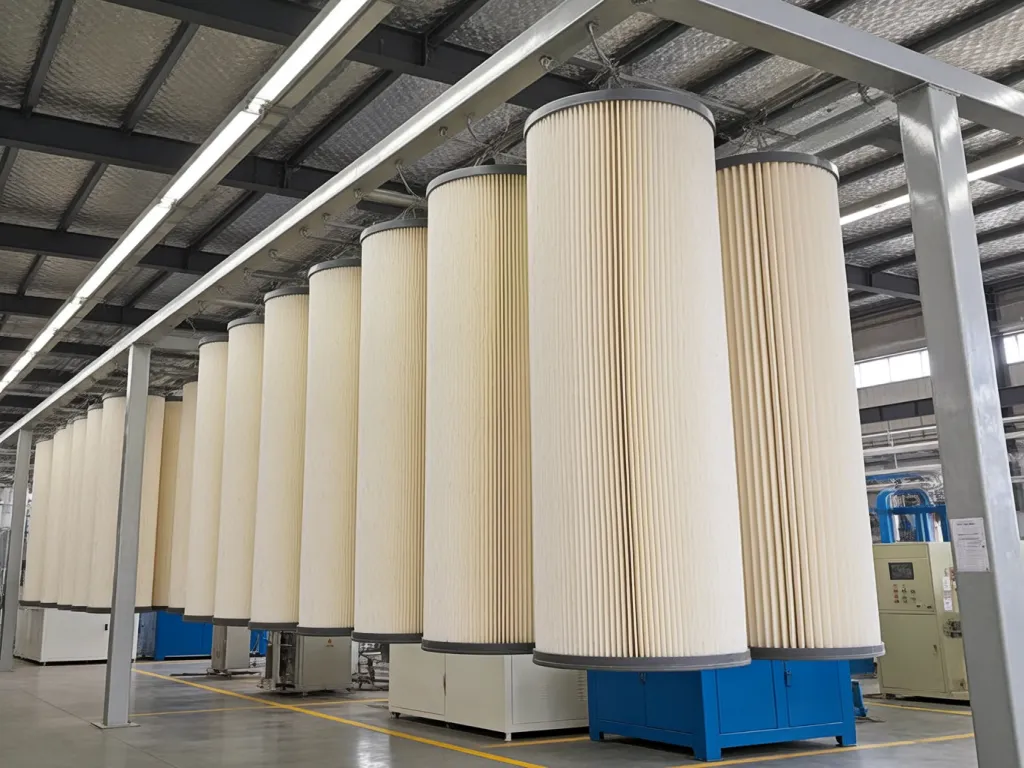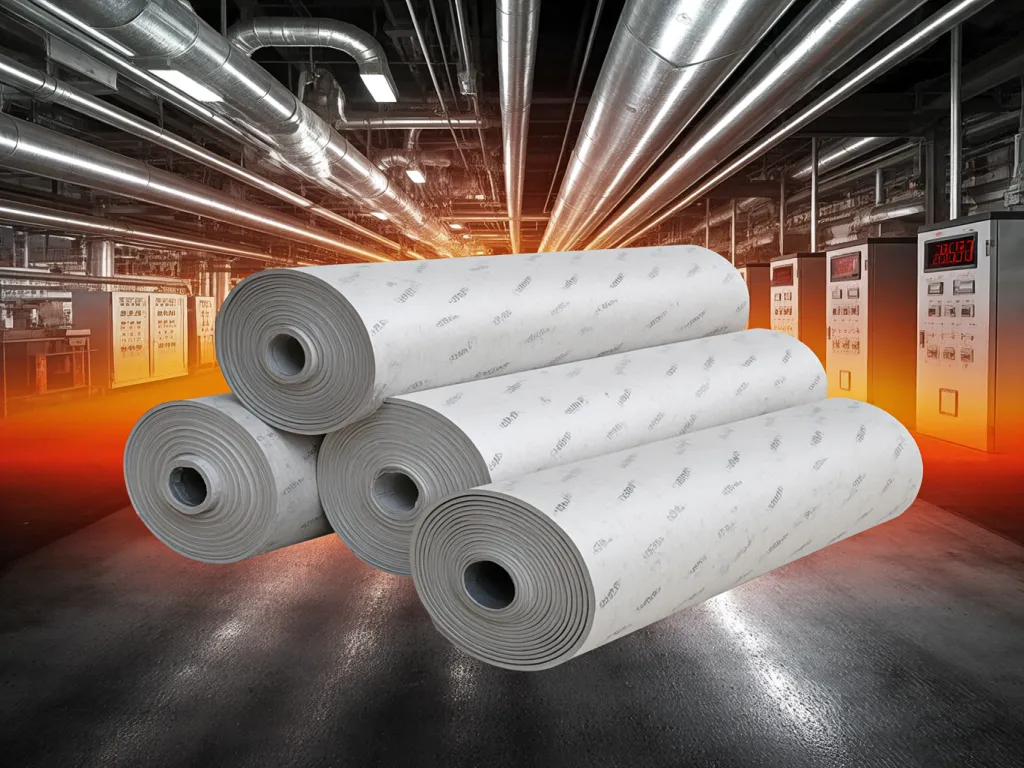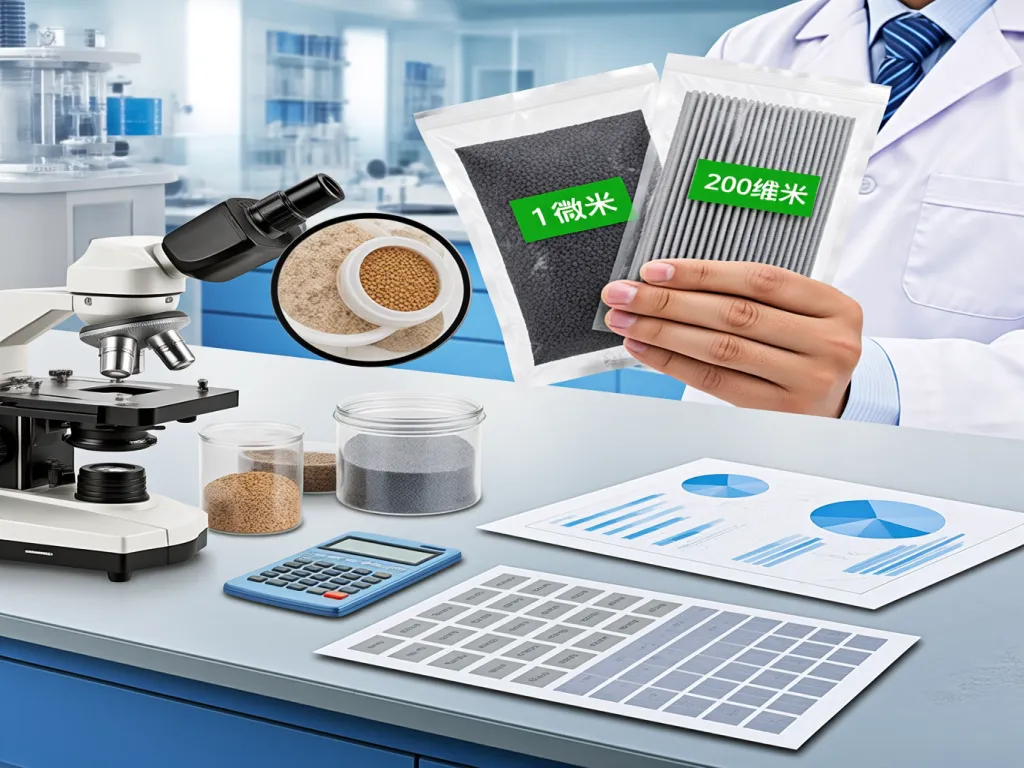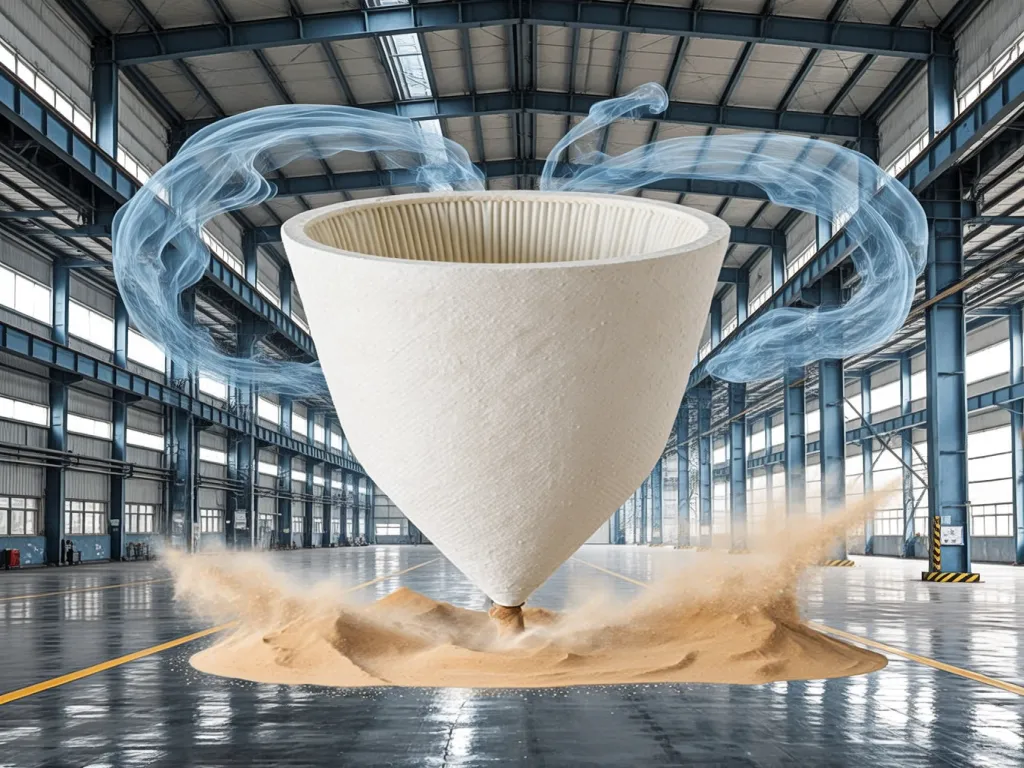Polyester Felt Filter Bag: Ultimate Guide to Material Mastery

When it comes to industrial filtration, the choice of filter bag material can make or break your system’s efficiency. Enter the polyester felt filter bag—a powerhouse in the world of industrial filtration. But what sets it apart from the rest? How do you choose the right one for your specific needs? Whether you’re battling high temperatures or chasing the highest filtration precision, understanding the nuances of polyester felt filter bag material properties is key. Let’s dive into the heart of what makes these filter bags indispensable in industrial settings.

Temperature Resistance Comparison: Analyzing the Performance of Different Polyester Felt Filter Bags in High-Temperature Environments
When it comes to industrial filtration, the ability of a polyester felt filter bag to withstand high temperatures is a critical factor. After all, many industrial processes generate heat, and if your filter bag can’t handle the heat, it could lead to premature failure, increased downtime, and higher operational costs. So, let’s dive into the world of polyester felt filter bags and explore how different types perform under high-temperature conditions.
First off, it’s essential to understand that not all polyester felt filter bags are created equal. The temperature resistance of these bags can vary significantly based on their manufacturing process, the quality of the polyester fibers used, and any additional treatments or coatings applied. Generally, polyester felt filter bags can withstand temperatures ranging from 130°C to 150°C (266°F to 302°F) continuously, with some high-performance variants pushing the limits up to 180°C (356°F) for short durations.
But why does this temperature range matter? Well, think about a cement plant where the kiln operates at temperatures well above 100°C. If you’re using a standard polyester felt filter bag that’s only rated for 130°C, you’re running a risk. Prolonged exposure to temperatures near or above its limit can cause the fibers to degrade, leading to reduced filtration efficiency, increased pressure drop, and eventually, bag failure. On the other hand, if you opt for a high-temperature-resistant polyester felt filter bag, you can ensure reliable performance even in these extreme conditions.
Now, let’s talk about the different types of polyester felt filter bags and their temperature resistance. Standard polyester felt bags are suitable for most general-purpose applications where temperatures don’t exceed 130°C. These bags are cost-effective and offer good filtration performance. However, if your process involves higher temperatures, you might want to consider a heat-treated polyester felt filter bag. These bags undergo a special heat-setting process that enhances their thermal stability, allowing them to withstand temperatures up to 150°C or even higher for short periods.
For applications that demand the utmost in temperature resistance, there are also polyester felt filter bags with special coatings or treatments. These can include PTFE (Polytetrafluoroethylene) coatings, which not only improve temperature resistance but also enhance chemical resistance and reduce friction. Such bags can handle temperatures up to 180°C or more, making them ideal for use in industries like steel manufacturing, incineration, and power generation.
But how do you know which polyester felt filter bag is right for your application? It all comes down to understanding your specific needs. Are you filtering hot gases from a boiler? Or are you dealing with dust-laden air in a foundry? Each scenario demands a different level of temperature resistance. By assessing the maximum temperature your process will reach and the duration of exposure, you can select a filter bag that offers the right balance of performance and cost-effectiveness.
In conclusion, the temperature resistance of polyester felt filter bags is a crucial consideration for any industrial filtration application. By understanding the different types of bags available and their respective temperature limits, you can make an informed decision that ensures reliable performance and minimizes operational risks. So, next time you’re in the market for a new filter bag, don’t just look at the price tag – consider the temperature resistance too. It could save you a lot of headaches (and money) down the line.
Factors Influencing Temperature Resistance
Several factors influence the temperature resistance of polyester felt filter bags. The quality of the polyester fibers is paramount. High-grade fibers with consistent diameter and minimal impurities tend to offer better thermal stability. The manufacturing process also plays a role. Bags that are needle-punched or heat-set tend to have a more compact structure, which can enhance their temperature resistance. Additionally, any coatings or treatments applied to the bag can significantly impact its ability to withstand high temperatures. For instance, PTFE coatings not only improve temperature resistance but also provide a non-stick surface that reduces the buildup of particulates.
Real-World Applications and Temperature Considerations
In real-world applications, the temperature resistance of polyester felt filter bags becomes even more critical. Take, for example, a power plant that uses coal-fired boilers. The flue gases produced can reach temperatures well above 150°C. Using a standard polyester felt filter bag in this scenario would be a recipe for disaster. Instead, a high-temperature-resistant bag with a PTFE coating would be a much better choice. Similarly, in a steel manufacturing plant, where molten metal is processed, the temperatures can soar even higher. Here, specialized filter bags with extreme temperature resistance are necessary to ensure safe and efficient operation.
Choosing the Right Bag for Your Application
Selecting the right polyester felt filter bag for your application involves more than just looking at the temperature rating. You also need to consider factors like the chemical composition of the gases or particulates being filtered, the pressure drop across the bag, and the expected lifespan. For instance, if you’re filtering corrosive gases, you’ll need a bag that offers both temperature and chemical resistance. On the other hand, if you’re dealing with abrasive particulates, you might prioritize a bag with high anti-abrasion properties. By taking a holistic approach to bag selection, you can ensure optimal performance and longevity.

Filter Precision Analysis: Detailed Explanation of the Filter Precision Range of Polyester Felt Filter Bags and How to Choose the Right One Based on Actual Needs
When it comes to industrial filtration, precision is key. The filter precision of a polyester felt filter bag plays a crucial role in determining the efficiency and effectiveness of your filtration system. So, what exactly is filter precision, and how do you choose the right one for your needs?
Filter precision refers to the smallest particle size that a filter bag can effectively capture and retain. For polyester felt filter bags, this range typically spans from 1 to 200 microns. Yes, you read that right – a single filter bag can be engineered to handle particles as tiny as 1 micron or as large as 200 microns. But how do you know which one to pick?
Let’s break it down. If you’re dealing with applications that require ultra-fine filtration, such as pharmaceutical manufacturing or semiconductor production, you’ll want to opt for a polyester felt filter bag with a lower micron rating. These bags are designed to capture even the tiniest of particles, ensuring your end product is free from contaminants.
On the other hand, if your application involves coarser filtration, like in the cement or mining industries, a higher micron rating might be more suitable. These bags allow for faster flow rates while still effectively removing larger particles from your process stream.
But here’s the thing – choosing the right filter precision isn’t just about matching the micron rating to your application. You also need to consider factors like flow rate, pressure drop, and the nature of the contaminants you’re dealing with. For instance, if your process involves sticky or oily particles, you might need a filter bag with a special coating or treatment to prevent clogging and maintain optimal performance.
So, how do you make the right choice? Start by understanding your specific filtration needs. What’s the particle size distribution of your contaminants? What flow rate do you require? What are your pressure drop limitations? Once you have a clear picture of your requirements, you can begin evaluating different polyester felt filter bags based on their filter precision and other performance characteristics.
Don’t be afraid to ask for help, either. Reputable manufacturers and suppliers often offer technical support and consultation services to help you select the right filter bag for your application. They can provide valuable insights into the latest technologies and materials, ensuring you get the most out of your filtration system.
In the end, choosing the right filter precision for your polyester felt filter bag is all about finding the perfect balance between efficiency, effectiveness, and cost. By taking the time to understand your needs and evaluate your options, you can ensure your industrial filtration system operates at peak performance, delivering clean, contaminant-free results every time.
Understanding Micron Ratings
Micron ratings can be a bit confusing at first glance. Essentially, a micron is a unit of measurement equal to one millionth of a meter. When we talk about filter precision in microns, we’re referring to the size of the particles that the filter bag can capture. A 1-micron filter bag, for example, can trap particles as small as 1 micron in diameter, while a 200-micron bag will only capture larger particles. Understanding these ratings is crucial for selecting the right filter bag for your application.
Factors Influencing Filter Precision Choice
Several factors come into play when choosing the right filter precision. Besides the particle size distribution of your contaminants, you also need to consider the flow rate of your process. A higher flow rate might require a filter bag with a larger pore size to prevent clogging. Pressure drop is another critical factor. A filter bag with too fine a precision might cause a significant pressure drop, affecting the overall efficiency of your system. Lastly, the nature of the contaminants – whether they’re sticky, oily, or abrasive – can also influence your choice. For scenarios involving sticky or oily particles, consider specialized solutions like the woven fiberglass dust filter felt cloth, which offers enhanced resistance to clogging.
The Role of Technical Support
Navigating the world of filter precision can be daunting, especially if you’re new to industrial filtration. That’s where technical support comes in. Reputable manufacturers and suppliers often have a team of experts ready to assist you in selecting the right filter bag. They can provide detailed product information, answer your questions, and even offer customized solutions based on your specific needs. For specialized liquid filtration needs, consider exploring our high-efficiency liquid filtration solution. Don’t hesitate to reach out – their expertise can save you time, money, and headaches down the line.

Comprehensive Performance Considerations: Beyond Temperature Resistance and Filtration Accuracy, Exploring Air Permeability, Tensile Strength, and Other Key Indicators of Polyester Felt Filter Bags
When it comes to industrial filtration, polyester felt filter bags are a go-to choice for many applications. But beyond their well-known temperature resistance and filtration accuracy, there’s a whole world of other performance indicators that can make or break your filtration system. Let’s dive into some of these crucial aspects that you might not have considered yet. Have you ever wondered how the air permeability of a polyester felt filter bag affects your filtration efficiency? It’s a question worth asking. Air permeability refers to the ease with which air can pass through the filter material. In industrial settings, where airflow is key to maintaining optimal conditions, this becomes a critical factor. A filter bag with high air permeability allows for smoother airflow, reducing pressure drops and ensuring consistent filtration performance. On the flip side, a bag with low air permeability might restrict airflow, leading to increased energy consumption and potential clogging issues. But how do you know what level of air permeability is right for your application? It depends on several factors, including the type of particles you’re filtering, the desired filtration efficiency, and the overall system design. For instance, if you’re dealing with fine dust particles, you might need a filter bag with lower air permeability to ensure thorough filtration. Conversely, for coarser particles, a higher air permeability bag could suffice, providing better airflow and reducing operational costs. Now, let’s talk about tensile strength. This is a measure of how much force a material can withstand before breaking. In the context of polyester felt filter bags, tensile strength is crucial because these bags are often subjected to high mechanical stresses during operation. Imagine a scenario where your filter bag is constantly being pulled and stretched as it captures particles from the airflow. Without sufficient tensile strength, the bag could tear or rupture, leading to costly downtime and potential contamination issues. So, how do you ensure your polyester felt filter bag has the right tensile strength for your needs? Look for bags that are made from high-quality polyester fibers with a tight weave or felt structure. For specialized needs, such as high-temperature-resistant filtration, consider bags designed with these specific properties in mind. These materials are known for their durability and ability to withstand mechanical stresses. Additionally, consider the bag’s construction details, such as the seam type and stitching pattern, as these can also affect its overall tensile strength. But tensile strength isn’t the only mechanical property to consider. You also need to think about the bag’s resistance to abrasion and chemical corrosion. In harsh industrial environments, where filter bags are exposed to abrasive particles or corrosive chemicals, these properties become even more important. A bag with excellent abrasion resistance will last longer, reducing the need for frequent replacements. Similarly, a bag with good chemical resistance will maintain its performance even when exposed to harsh chemicals, ensuring reliable filtration over time. So, how do you find a polyester felt filter bag that ticks all these boxes? It starts with understanding your specific application requirements. What are the particle sizes you’re dealing with? What are the environmental conditions like? How much mechanical stress will the bag be subjected to? Once you have a clear picture of your needs, you can start looking for bags that are designed to meet those requirements. Don’t be afraid to ask manufacturers for detailed specifications and performance data. A reputable manufacturer will be happy to provide you with this information, helping you make an informed decision. And remember, choosing the right polyester felt filter bag isn’t just about performance; it’s also about cost-effectiveness. A bag that lasts longer and performs better will ultimately save you money in the long run, even if it comes with a slightly higher upfront cost.
Air Permeability: The Breath of Your Filtration System
Air permeability is more than just a technical term; it’s the breath of your filtration system. Think of it like the pores on your skin. Just as your skin needs to breathe to stay healthy, your filtration system needs adequate airflow to function efficiently. A polyester felt filter bag with the right air permeability ensures that air can pass through easily, maintaining optimal pressure levels and preventing clogging. But how do you strike the right balance? It’s all about understanding your specific application. For instance, in a cement plant where fine dust is prevalent, you might need a bag with lower air permeability to capture those tiny particles effectively. On the other hand, in a woodworking shop where larger wood chips are the main concern, a higher air permeability bag could be more suitable, allowing for better airflow and reducing the risk of clogging.
Tensile Strength: The Backbone of Durability
When it comes to durability, tensile strength is the backbone of your polyester felt filter bag. It’s what keeps the bag intact under the constant pull and stretch of industrial filtration. Choosing a bag with insufficient tensile strength is like building a house on sand; it’s only a matter of time before it collapses. So, how do you ensure your bag has the strength it needs? Look for bags made from high-quality polyester fibers with a dense weave or felt structure. These materials are engineered to withstand the rigors of industrial use, providing you with a reliable and long-lasting filtration solution. Additionally, pay attention to the bag’s construction details, such as the seam type and stitching pattern, as these can significantly impact its tensile strength.
Beyond the Basics: Abrasion and Chemical Resistance
While air permeability and tensile strength are crucial, they’re not the only factors to consider. In harsh industrial environments, where filter bags are exposed to abrasive particles or corrosive chemicals, abrasion and chemical resistance become equally important. A bag with excellent abrasion resistance will withstand the wear and tear of constant use, reducing the need for frequent replacements. Similarly, a bag with good chemical resistance will maintain its performance even when exposed to harsh chemicals, ensuring reliable filtration over time. So, how do you find a bag that offers both? Look for manufacturers who specialize in industrial filtration and have a proven track record of producing durable and reliable filter bags. Ask for detailed specifications and performance data, and don’t hesitate to request samples for testing in your specific application.
So, there you have it—a deep dive into the world of polyester felt filter bags. From their impressive heat resistance to their tailored filtration capabilities, these bags are a testament to the power of material science in industrial applications. By now, you should have a clearer picture of how to select the perfect polyester felt filter bag for your needs. Remember, the right choice can elevate your filtration system from good to great. Ready to make an informed decision and give your industrial processes the boost they deserve? Explore our selection and find the polyester felt filter bag that fits like a glove. And hey, why not share this guide with fellow industry professionals? After all, knowledge is power—especially when it comes to optimizing industrial filtration.

